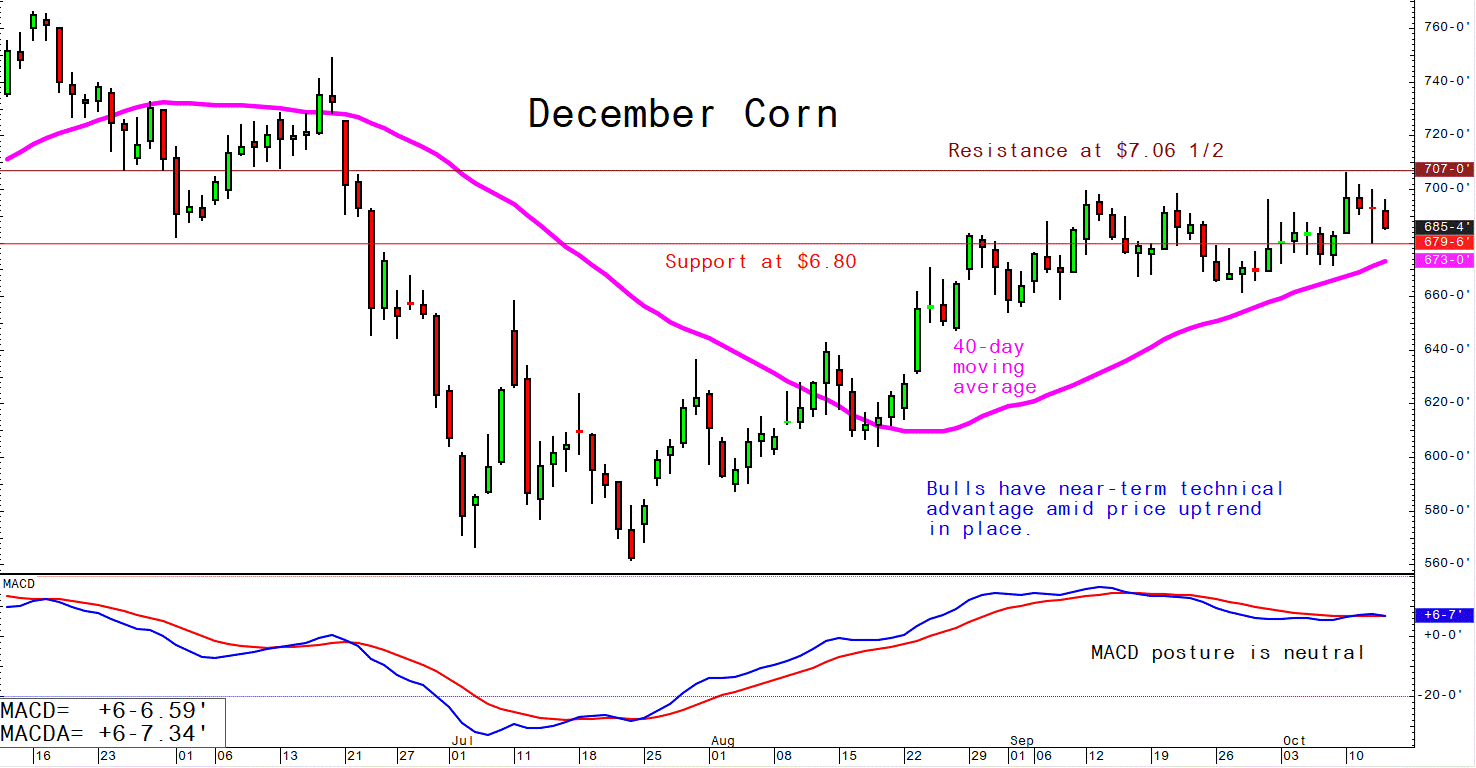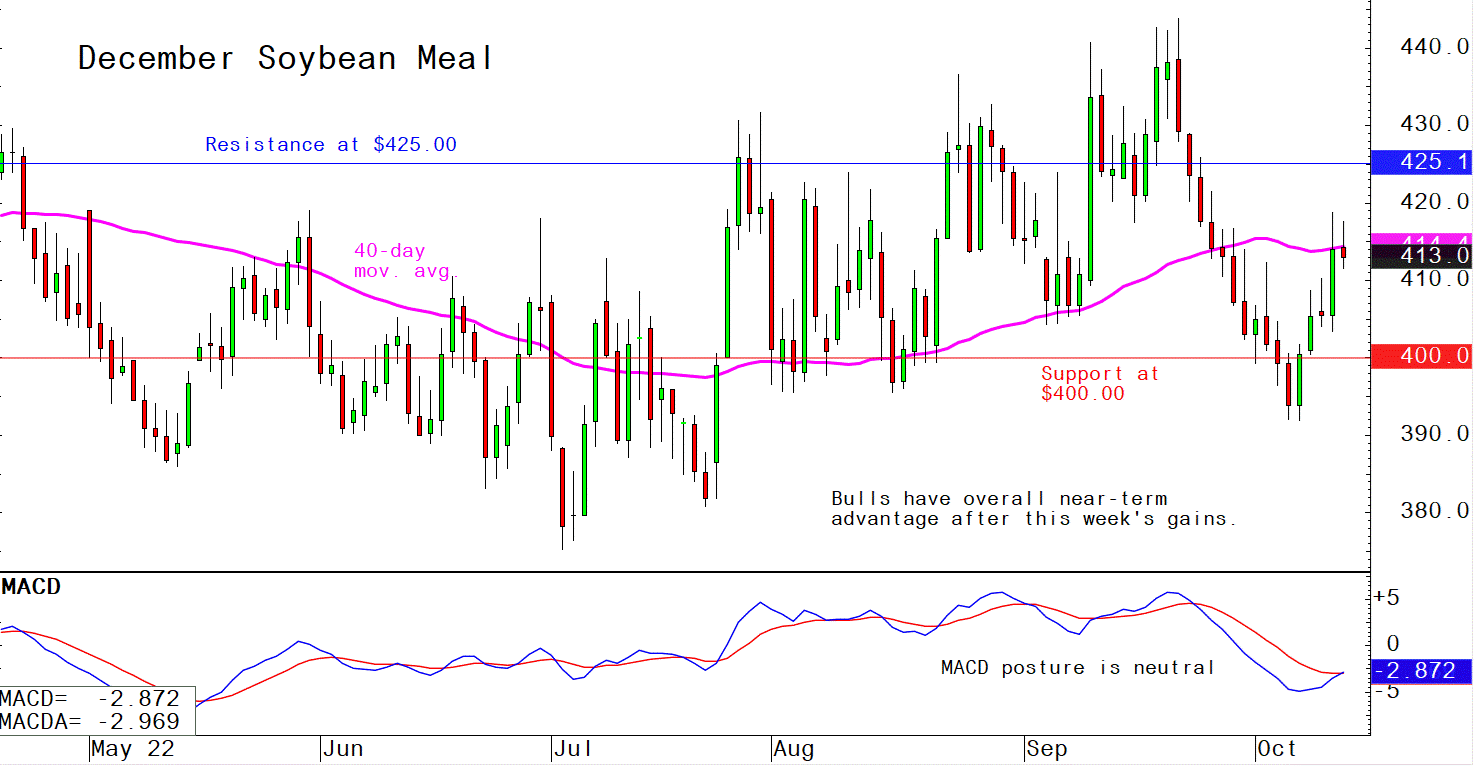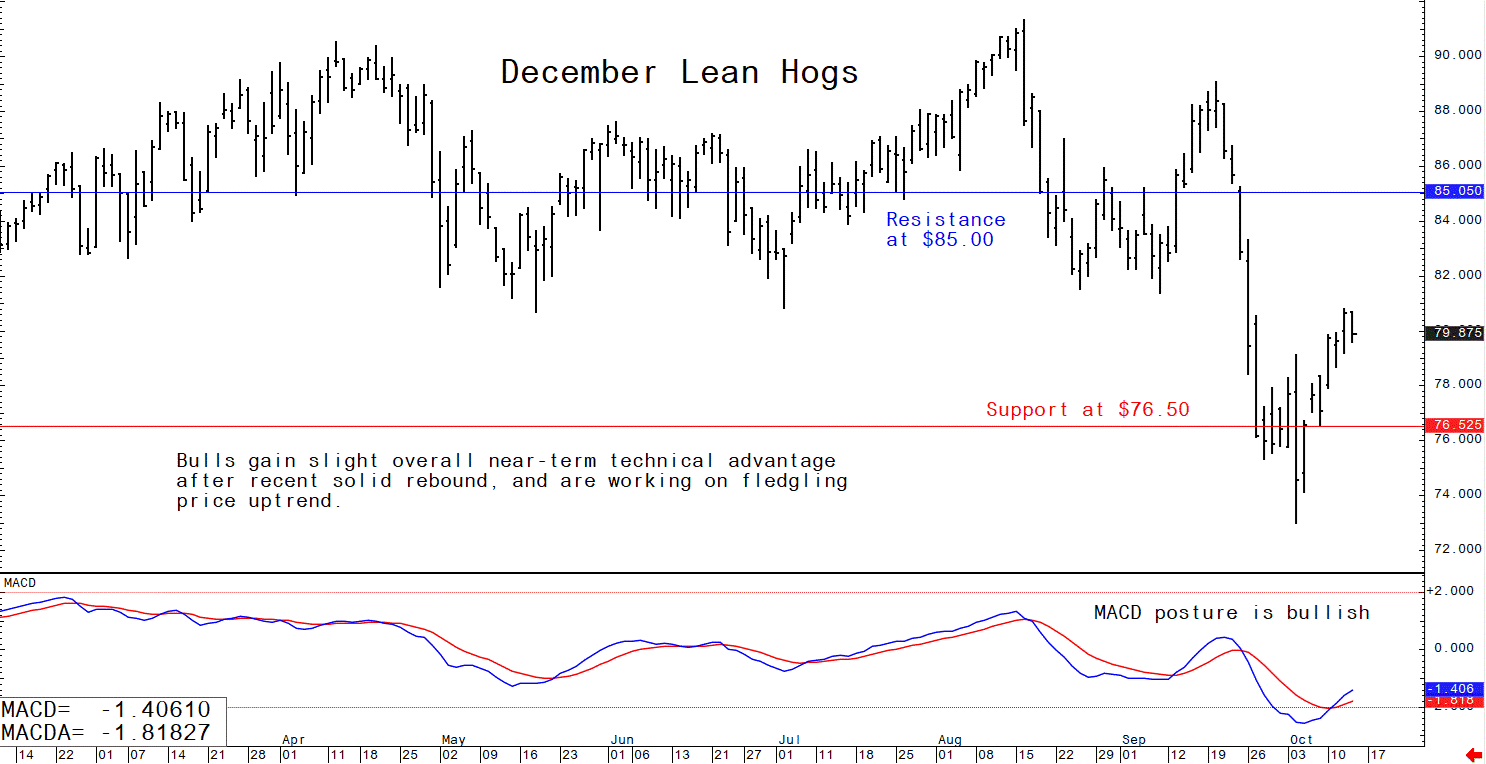



Pig outlook: Lean hog futures see strong price rebound, Romania ASF outbreak
Analyst Jim Wyckoff shares an update on the US futures market, USDA reports and global pig newsThe pig traders’ perspective: The lean hog futures market has posted a solid rebound from the early October low, to suggest more price gains in the near term. The CME lean hog index is down 46 cents to $92.49 (as of Oct. 11). However, wholesale pork prices are rising and giving no indications of top. The recent rise in the pork cutout has pushed packer margins back into the black, which should help alleviate some of the normal seasonal cash weakness. USDA’s monthly Supply and Demand report this week showed slightly higher U.S. pork production this year and slightly lower exports compared to previous expectations. Estimated U.S. pork production was raised to 27.162 billion lbs., up less than 0.1% from a September forecast. Estimated 2022 exports were lowered 1.6% to 6.389 billion lbs.
Judge pauses Wholestone Farms’ $500 million pork plant
On Oct. 11, Judge Sandra Hoglund Hanson put a halt to Wholestone Farms’ progress on its plans for a pork processing facility in Sioux Falls, South Dakota. Wholestone Farms estimated the project to cost $500 million and to employ over 1,100 workers. In addition, Wholestone planned to operate a butcher shop in Sioux Falls. In September, Smart Growth Sioux Falls, a group of area residents that opposes new slaughterhouses in the city, filed a civil complaint against Wholestone Farms, requesting the court deny the pork processor any permits needed to move forward with its proposed processing plant and butcher shop in Sioux Falls prior to the November 2022 election. According to Smart Growth, the city “preemptively” issued Wholestone a permit of occupancy for its butcher shop. The judge’s ruling will revoke all Wholestone’s permits approved by the city until Sioux Falls residents vote on the matter in November.
USDA’s annual global dairy and livestock report
PORK
Global production is forecast to rise 1 percent in 2023 to 111.0 million tons as production in China increases. China pork production is expected to grow 2 percent as the sector continues to recover from the impacts of African swine fever (ASF). High feed costs in China are expected to reduce incentives to over-fatten hogs. The United States, Brazil, and Mexico are also forecast to expand production, more than offsetting declines by other major producers including the EU and the United Kingdom (UK). Rising feed, energy costs, and environmental restrictions will dampen EU production. Producers in the UK face high feed costs and weaker demand for domestic pork. Brazil and Mexico continue to expand their hog sectors to meet growing domestic demand, partly driven by consumers seeking alternatives to higher-priced beef, and stronger export demand in several key countries. Production in Vietnam continues to rebound as the management of ASF has protected the sector from large-scale outbreaks. Global exports are forecast to fall 2 percent to 10.5 million tons in 2023 as China imports weaken for a second consecutive year. Despite persistent issues with ASF, Philippines pork imports are also forecast to decline due to the end of policies favoring imports in 2022; the temporary increase in pork quota volumes ended in May 2022 and reduced tariffs were extended through the end of 2022. UK pork imports rise as pre-pandemic consumption trends are expected to return, shifting purchases from retail to food service, shifting demand for domestically produced pork to imported pork. U.S. production and exports: U.S. production is forecast 1 percent higher in 2023 to 12.4 million tons on gradually increasing pig crops and heavier weights. However, U.S. exports are forecast lower in 2023 on easing demand by key importers such as Mexico and China.
Proposition 12: US Supreme Court examines humane pig treatment
The U.S. Supreme Court (SCOTUS) justices voiced worries about the implications of a new California humane-pork law, Proposition 12, asking whether it might open the way for other states to try to impose their moral values beyond their borders. Justices suggested they might let a pork-industry challenge to the law go forward without issuing a definitive ruling on the measure’s constitutionality. If so, that could mean allowing a pork industry-backed lawsuit challenging the law to play out in the lower courts rather than rule on its constitutionality. A decision in the case is expected sometime next year. Link to our special report on the topic for more.
Justice Elena Kagan offered a possible solution to the dilemma facing the court. She noted that the dispute came to the Supreme Court before a trial on the merits, so at this early point in the litigation, courts must accept the challengers’ allegations in their complaint as true. At this stage, she stressed, even if a state’s moral interests in a law are something that courts should consider, the challengers’ complaint “alleges great costs to the pork industry.” Because the case is still at a preliminary stage, she said, isn’t the appropriate step for the court to send the case back for the lower court to balance the burden that Proposition 12 imposes on out-of-state commerce against the benefits to California?
“A state may not project its legislation into other states,” said Chicago attorney Timothy Bishop, representing the National Pork Producers Council. “We will not have a national economic union if California can impose its moral views this way.” He argued that if California’s law is upheld, Oregon could require that products sold there from other states must be made by workers who were paid the state’s higher minimum wage, or Texas could limit sales to products made entirely by lawful U.S. residents.
The Biden administration joined the case on the side of the pork producers and emphasized a similar argument. California’s Proposition 12 “imposes a substantial burden on interstate commerce,” said Deputy Solicitor Gen. Edwin Kneedler. “It invites conflict and retaliation and threatens the balkanization of the national economic union.”
California Solicitor Gen. Michael Mongan defended the law on the grounds that it applied only to pork sold in the state and not elsewhere. “California voters chose to pay higher prices to serve their local interest in refusing to provide a market to products they viewed as morally objectionable and potentially unsafe,” he said.
But objections surfaced from both liberal and conservative justices who foresaw a threat of similar measures. “We live in a divided country,” Justice Elena Kagan said, “and the balkanization that the framers were concerned about is surely present today.”
Justice Ketanji Brown Jackson suggested the California law may have gone further than necessary. Why not require labeling instead, she said, so consumers could avoid pork if it is originated with pigs subjected to cruelty? “Why couldn’t the state advance its interest in a less burdensome way?” she asked.
Justice Neil Gorsuch said the Constitution empowers Congress, not judges, to set national regulations that protect interstate commerce. He said it would be better to “defer to the states” than to have judges decide which state laws have too much effect on businesses in other states.
The Humane Society of the United States and several animal-protection groups objected to the Justice Department’s contention that Californians have no “legitimate” interest in preventing cruelty to animals. “The citizens of California do not want to be complicit in patronizing or condoning the abuse and cruel treatment of these intelligent, social animals,” wrote Katherine A. Meyer, director of the Harvard Animal Law and Policy Clinic. She noted that in the Dobbs vs. Jackson Women’s Health Organization decision that overturned Roe vs. Wade, the court said that questions of “profound moral and social importance” are “unequivocally” left to the people to decide. If so, she said, “Californians should be able to decide not to be complicit in such blatant cruelty to animals with respect to the food products sold in their state.”
— Lawsuit wants to force EPA to respond on CAFO regulation. A coalition of public interest and environmental justice organizations filed a lawsuit last Friday (link) to compel the EPA to respond to an earlier rulemaking petition submitted to the agency in 2017, that asked the EPA to overhaul how large-scale animal production facilities are regulated under the Clean Water Act. The lawsuit argues that the agency’s five-year delay to respond to the petition is unreasonable and violates the Administrative Procedure Act (APA), which requires agencies like EPA to respond to petitions “within a reasonable time.” Filed in the Ninth Circuit Court of Appeals, it aims to force EPA to issue a formal response.
Petitioners in the lawsuit include: Food & Water Watch, Center for Food Safety, Dakota Rural Action, Dodge County Concerned Citizens, the Environmental Integrity Project, Helping Others Maintain Environmental Standards, Institute for Agriculture and Trade Policy, Iowa Citizens for Community Improvement, Kewaunee CARES, Midwest Environmental Advocates, and North Carolina Environmental Justice Network.
Romania confirms new ASF outbreak
Romania has confirmed an outbreak of African swine fever (ASF) at a large pig farm in the western county of Timis. A Romanian official said, “A priority is to protect two other farms, each with tens of thousands of pigs, located a few kilometers away.”
The next week’s likely high-low price trading ranges:
December lean hog futures--$78.00 to $85.00, and with a sideways-higher bias
December soybean meal futures--$400.00 to $425.00, and with a sideways bias
December corn futures--$6.60 to $7.06 1/2 and a sideways bias
Latest analytical daily charts lean hog, soybean meal and corn futures










